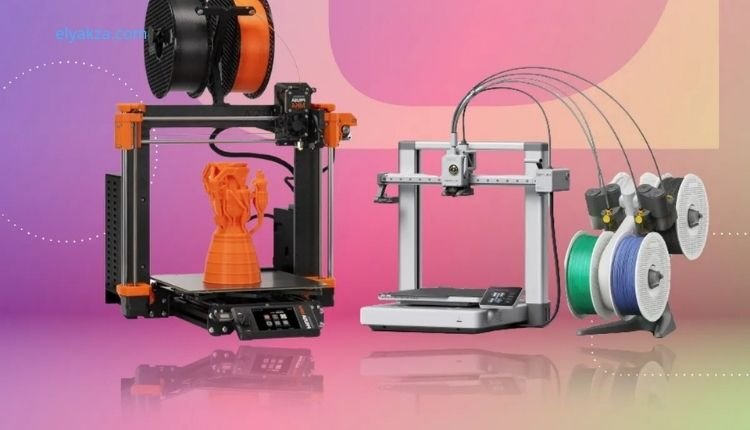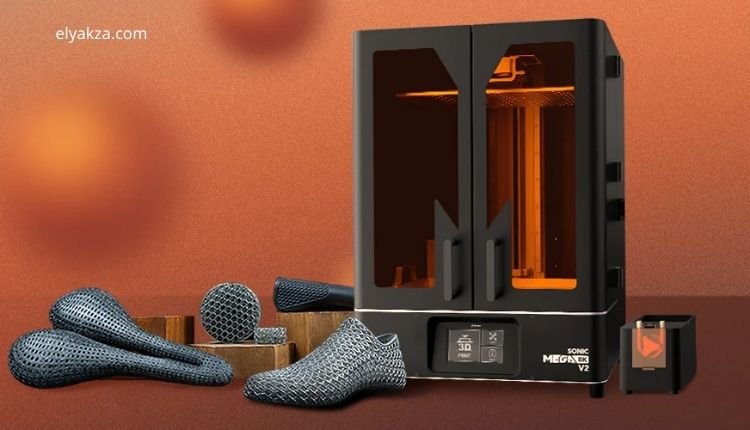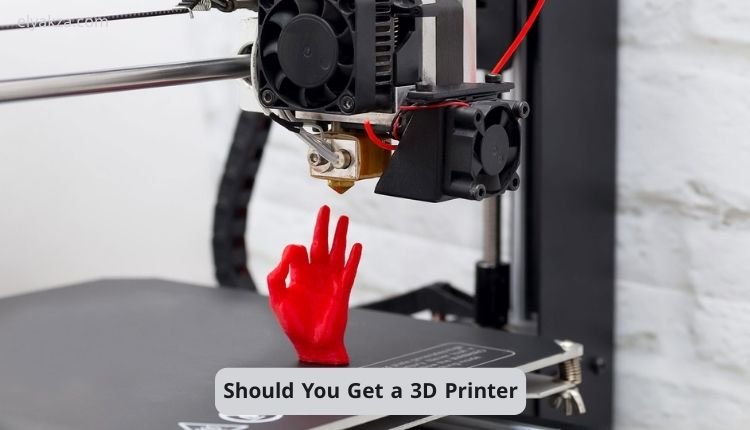Considering a 3D printer but still on the fence? You’re not alone. Many enthusiasts and creators find themselves at a crossroads, weighing the perceived benefits against potential hurdles. Is a 3D printer truly a worthwhile investment, or is it just another gadget destined to gather dust? The answer, as with most technological advancements, is nuanced.
قائمة المحتويات
This comprehensive guide will break down the decision-making process for you, presenting five compelling reasons why a 3D printer could revolutionize your home and workshop, alongside five crucial reasons why it might not be the right fit for your current needs. Whether you’re a budding inventor, a DIY enthusiast, or simply curious about the future of manufacturing, understanding these points will equip you to make an informed choice. Let’s dive in and explore the world of additive manufacturing, helping you determine if a 3D printer deserves a place in your life.
The Allure of 3D Printing: 5 Compelling Reasons to Invest
3D printing has moved beyond niche hobbyist circles into a powerful tool for customization, innovation, and practical problem-solving. Here are the top five reasons why investing in a 3D printer could significantly enhance your capabilities and lifestyle.
Unleash Unrivaled Customization and Personalization
One of the most powerful arguments for owning a 3D printer is the unparalleled ability to customize and personalize virtually anything in your environment. Imagine a world where every item perfectly fits your specific needs, aesthetic preferences, and functional requirements – a 3D printer makes this a reality.
Take, for instance, a home studio setup. The speaker in the original text wanted to streamline his desk, moving clutter underneath to create a clean, minimalist workspace. Instead of buying generic mounts that might not fit perfectly or match his vision, he designed and printed custom holsters for his space mouse, iPad, keyboard, Mac Mini, and even a SanDisk Pro Blade.
- Printing unique hooks or holders for IKEA Scodies
- Creating specific mounts for lighting accessories like an AMS light
- Accessing repositories like Maker World for endless ready-to-print models
This isn’t just about utility; it’s about making your space truly yours, reflecting your unique style and maximizing efficiency.

Long-Term Savings: Print Your Solutions, Don’t Buy Them
While the initial investment in a 3D printer and filament might seem like an expense, it can lead to significant long-term savings by enabling you to print specific items you’d otherwise have to purchase.
How many times have you visited a hardware store searching for a specific, often obscure, part that you need for a repair or a project, only to come up empty-handed or settle for a subpar alternative?
With a 3D printer, those frustrating trips become a thing of the past. Need a very specific spacer with precise measurements? Instead of scouring aisles or ordering expensive custom parts, you can design and print it yourself.
- Save money on components
- Reduce fuel and transportation costs
- Manufacture parts on demand
Over months and years, these small savings accumulate, effectively offsetting the initial cost of the printer and filament.
Empower Your Innovations: The Power of Prototyping
For anyone with an inventive spirit, a 3D printer is an indispensable tool for rapid prototyping. In the past, turning an idea into a tangible product prototype involved significant time and financial investment, often requiring sending designs to external factories, sometimes even overseas.
Today, a 3D printer brings this capability right into your home or office. The speaker shares his experience of prototyping a triple holster for camera batteries that doubles as a charger – a product that has generated “hundreds of thousands of dollars.”
This illustrates the transformative potential:
- Move from concept to physical object within hours
- Test form, fit, and function quickly
- Refine and perfect before mass production
This iterative process of design, print, test, and refine is crucial for innovation.
Boundless Creative Freedom: Bring Any Idea to Life
Beyond practical utility, a 3D printer unlocks a profound level of creative freedom that can be incredibly satisfying. It enables you to transcend the limitations of commercially available products and bring your unique visions to life. If you can imagine it, you can design and print it.
Consider the example of camera gear. Need a specialized stand for a Nanlight Pav Tube that perfectly positions it for your video background? Design and print it. Want a unique wall hook for your lighting, or a specific clip to hang lights in a tent? A 3D printer empowers you to create these bespoke solutions.
- Print accessories for filming setups
- Customize organizational tools
- Build decorative or functional household objects
This creative outlet allows you to constantly innovate, solve problems in novel ways, and build things that are uniquely yours.
Join a Vibrant and Supportive Community
The 3D printing world is not just about machines and plastic; it’s also about a thriving, passionate, and incredibly supportive global community. Platforms like Maker World exemplify this, offering a space where users share their designs, ask questions, and help each other troubleshoot.
- Download professionally designed prints
- Reproduce high-quality models at home
- Get inspiration and assistance for unique designs
This collaborative environment reduces barriers to entry, provides continuous learning opportunities, and fosters a sense of belonging among makers worldwide.
“Read Also: the Best Portable Printers of 2025“
The Practical Realities: 5 Reasons Why a 3D Printer Might Not Be For You
While the benefits of 3D printing are compelling, it’s crucial to approach the investment with a clear understanding of its demands. Like any advanced tool, a 3D printer comes with its own set of challenges.

The Steep Learning Curve and Design Challenges
Despite the plug-and-play promises of some modern printers, getting truly proficient with 3D printing involves a significant learning curve. This isn’t just about operating the machine; it extends to understanding the entire ecosystem, from design software to print settings.
Learning to design your own models in CAD software like Fusion 360 can be tedious and time-consuming. Beyond design, you’ll need to grapple with slicer software, which translates your 3D model into instructions for the printer.
You’ll need to manage:
- Layer height
- Infill
- Print speed
- Supports and material science
For a complete novice, these initial steps can feel overwhelmingly complex.
A Significant Time Commitment: Prints and Designs
3D printing is not an instant gratification hobby. Both the design phase and the actual printing process can consume a substantial amount of time.
Even if you’re not designing from scratch, finding, downloading, and preparing a model for printing takes time. The actual printing, however, is where the bulk of the time often goes.
- Small items may take minutes
- Complex prints can take hours or even days
- Large projects may tie up your printer for 72 hours or more
This time commitment can quickly turn into a chore if patience is lacking.
“Read Also: Top Health Trackers Compared“
Noise and Space Considerations: Where Will It Live?
A 3D printer isn’t a silent, compact device. It requires a dedicated space, and its operation generates noise.
Printers vary in size and design – some are open-frame, others are enclosed – but even the compact models need a stable, level surface.
- Printers generate noticeable sound from motors and fans
- Long prints can be disruptive in shared spaces
- Ventilation is required for certain materials
Before purchasing, it’s vital to consider space and noise levels in your home.
Regular Maintenance and Tinkering Required
Unlike a conventional appliance that you plug in and forget, a 3D printer requires ongoing maintenance and occasional tinkering.
Common maintenance tasks include:
- Cleaning the print bed
- Calibrating bed level
- Cleaning nozzles and replacing worn parts
- Adjusting belts and motors
The speaker compares it to a car – eventually, you might need a “mechanic,” except with 3D printing, you often need to be your own.
The Ongoing Costs of Printers and Filaments
While long-term savings are possible, the initial and ongoing costs can be significant.
- Good quality printers can cost hundreds or thousands of dollars
- Filament expenses add up quickly with frequent printing
- Additional costs include spare parts, upgrades, and electricity
The speaker notes that “good printers and filaments is going to cost you a crapload of money over time,” highlighting the financial commitment involved.
“Read Also: Nothing Phone 3 Review“
Making Your Decision: Is a 3D Printer Right for You?
Having explored both the exciting advantages and the tangible drawbacks, the decision to invest in a 3D printer ultimately boils down to a personal assessment of your needs, patience, and budget.
The speaker, despite listing significant cons, still emphatically believes “everyone should have a 3D printer.” This sentiment often resonates with those who thrive on problem-solving, customization, and continuous learning.
If the idea of designing custom solutions, saving money on specific parts, prototyping your inventions, or simply indulging in unparalleled creative freedom excites you more than the potential headaches of maintenance, learning curves, and costs deter you, then a 3D printer is likely a worthwhile investment.
For those considering their first plunge, the market offers excellent entry points. The Bambu Lab A1 is highly recommended as a “great printer for the money” and a “perfect stepping stone” into 3D printing. If an enclosed unit is preferred, options like the X1C, P1P, or P1S from Bambu Lab also come highly praised.
Ultimately, the best way to approach this decision is to weigh the five reasons to buy against the five reasons not to. If the benefits outweigh the challenges in your personal equation, then you are indeed “on the right track to actually buying a 3D printer.”
Conclusion: The Future in Your Hands
The world of 3D printing is dynamic, innovative, and increasingly accessible. From offering unparalleled customization and long-term savings to empowering rapid prototyping and boundless creative expression, a 3D printer is more than just a tool – it’s a gateway to a new dimension of making.
However, it’s also a commitment. It demands patience, a willingness to learn, and an understanding of its inherent time, space, and maintenance requirements. It’s a journey into a vibrant community, but one that requires you to actively engage with its complexities.
If you’re ready to embrace the learning curve and enjoy the profound satisfaction of turning digital designs into physical objects, then a 3D printer might just be the most exciting addition to your creative arsenal. It’s a technology that puts the power of creation, literally, into your hands. The question isn’t just about buying a machine; it’s about investing in a future where you can truly make anything possible.
Sophia Oliver is a tech-savvy writer who specializes in technology reviews, delivering in-depth and unbiased insights into the latest gadgets, devices, and software. Her content helps readers stay up-to-date with the rapidly evolving tech world.
Sophia’s reviews are known for their clarity and balance, offering both pros and cons to give readers a full picture before making a purchase. She covers smartphones, laptops, smart home devices, wearables, and emerging tech products.
Her mission is to simplify technology for everyday users, while also offering valuable insights for tech enthusiasts who seek detailed performance analysis. Sophia’s work inspires confidence in readers to make informed choices in a fast-paced digital marketplace.

